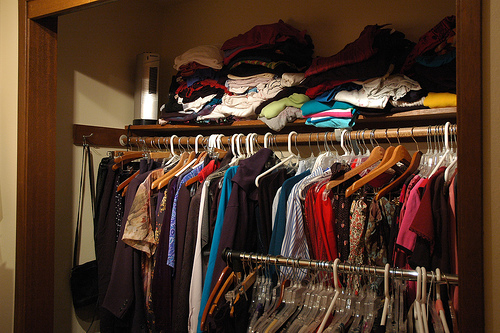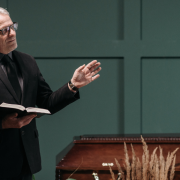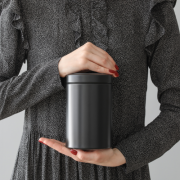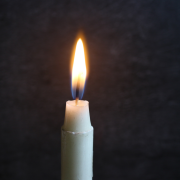Cleaning Out the Closet of the Deceased
 When someone close to us passes away, we are overwhelmed with the feeling of helplessness. We don’t know what to do and how to go about our daily lives again. Despite the countless tasks we need to finish, grief has taken control over us. We find ourselves in a corner, wondering what to do next.
When someone close to us passes away, we are overwhelmed with the feeling of helplessness. We don’t know what to do and how to go about our daily lives again. Despite the countless tasks we need to finish, grief has taken control over us. We find ourselves in a corner, wondering what to do next.
One of the most painful experiences the bereaved has to go through is sorting out the deceased’s belongings. These are the things left behind by our loved one, the personal items brimming with memories; those that we’ve avoided for the longest time because we still want to feel our loved one’s presence.
The truth is there is no “one size fits all” when cleaning out the closet of the deceased. Others take weeks, months and even years to finally do it. Every experience with death is relative. That’s why it helps to have a sense of support and guidance so you know you are not alone.
Below, we’ve prepared some tips to guide you through this moment of healing.
Take your time
Many regret going through this process to quickly. They wished they could have taken more time into sorting and keeping the items of their loved ones. In a few months’ time, the things they’ve disposed of would have been useful. Other times, some of the items they gave away would have served another purpose.
Take your time. Go through the items to as little as an hour each time you can and discern what gets to stay and what needs to be donated or kept somewhere else. The truth is you are the only one who knows when the time has come to clean out the closet. No one can ever tell you that you should’ve done it a long time ago.
Don’t feel guilty
A bulk of the reason why we keep postponing this task is that we might feel like we’re already letting go of the deceased. Remember, it’s not your responsibility to keep everything the person left behind. The most important thing is the memories that come with the material thing. That’s what truly counts.
Allow yourself to grieve
You’ve just lost someone near and dear to you. You’ll be living your life without that person beside you. You’ve taken a hard, life-shaking jolt so allow yourself to grieve.
When the time comes to sort out the sentimental items, slow down and allow yourself to cherish those memories. Whether it’s a picture of the deceased or a board game both of you enjoyed playing together, let yourself reminisce. Let yourself accomplish less because truly, these things take time.
Sort in three categories
A common practice among the bereaved is to sort the items into three categories: “Donate/Trash”, “Keep”, “For Later”. This system allows you to have better focus on what you’re doing and makes the task more organized.
Keep in mind, you are not obligated to keep everything. Those that served the deceased well during his/her life may be more useful if donated, such as business suits for the workforce or coats for the people in the streets. Keep those items that have real sentimental value to you, like letters, a few photos or specific items that hold immeasurable significance.
The “For Later” category is the box that you want to ponder on for a longer time. This swims between the ones you want to keep and the ones you want to give away.
Start with items that are easier to sort
When you start with items that are easier to let go, you give yourself the momentum you need to go from Point A to Point B. For example, begin by tossing the person’s used socks, underwear or opened food, lidless Tupperware, magazines, soaps, crumpled receipts and the like.
By the end of this task, you’d be surprised how much you were able to accomplish.
Consider the cost
It would be helpful to think about the future costs of keeping or sorting your loved one’s belongings. How much would storage cost? Are you financially capable of having these items stored in a separate repository? Should certain items be appraised?
As much as these items are valuable to you, it would be ideal for you to consider the financial risks and benefits this endeavor will entail.
Reflect on your own well-being
Stumbling across papers that may make you feel negative emotions should be dealt with right away. If you think your relatives won’t be able to handle these papers or documents, have someone more logical to help you sort through it.
You must also think about your own well being when deciding to keep certain items. Will it benefit you in the long run? Are you locking yourself up in an emotional cage? Will there be room for personal growth?
Certainly, your deceased loved one want nothing but the best of you. So consider how these items will affect you in the near future.
Remember, memories will trump material things any day. How you remember your loved one far outweighs the amount of items s/he has in the closet.







